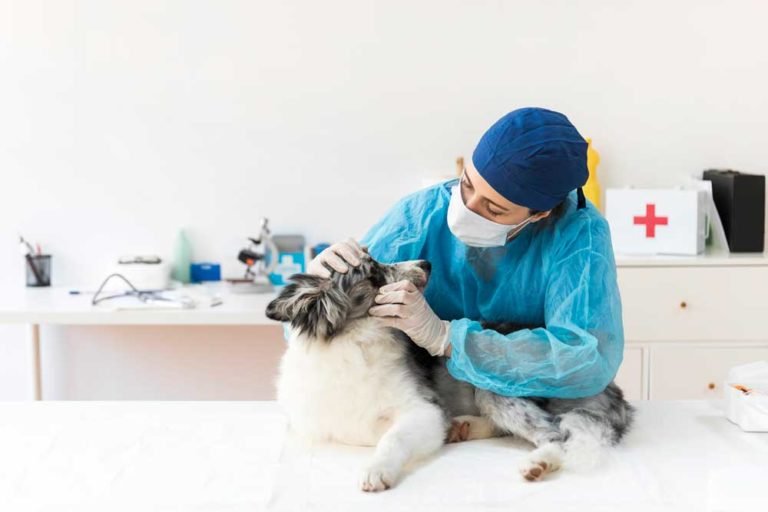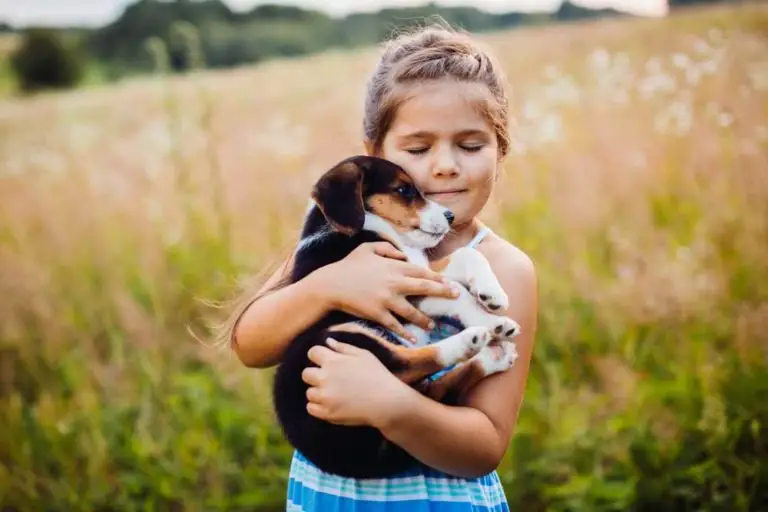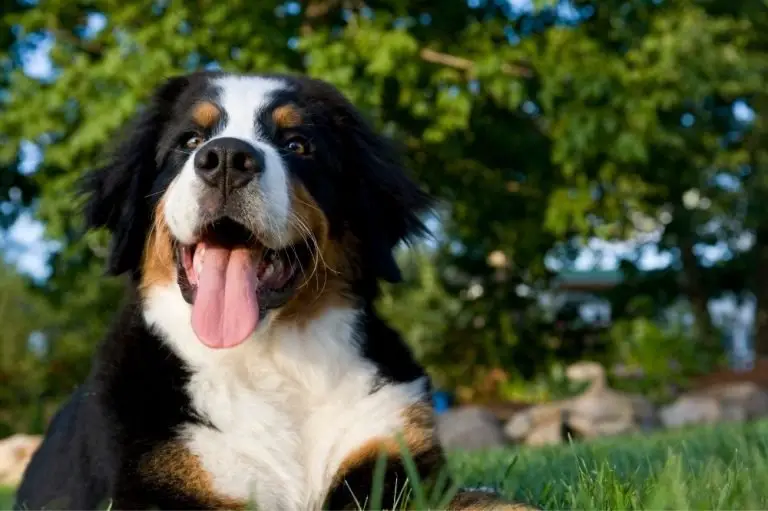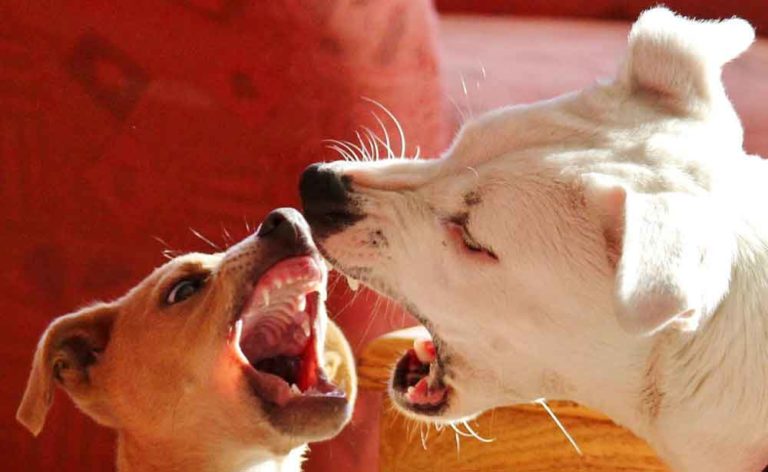10 Reasons Why Your Old Dog Won’t Eat
Dogs over seven years are considered senior dogs and experience a lot of significant changes in themselves. Some of these are related to bodily functions, including appetite.
However, seniority depends on the life span, and some dogs can be considered seniors at a later stage. Dogs love their food and will continue eating even when they are full.
A sudden loss of appetite is visible when your dog stops eating or even starts rejecting food.
Generally, old dogs lose their appetite gradually with age. However, an inevitable fall in it is a cause of concern. While the underlying cause can be significant or just a minor issue, getting to the root cause of the problem is necessary. If you feel your dog has lost its inclination towards food, the following reasons can help you diagnose the problem. However, if the situation persists, you must consider visiting a doctor.
Dogs may suffer from two cases of eating disorder. One is canine anorexia, where they lose their appetite completely, and hypoxia, which means a partial loss of appetite.
10 Reasons why your old dogs lose their appetite
1) Slower Metabolism
The most obvious cause for a senior dog to lose appetite is its age itself. Just like humans, dogs experience a slow metabolism as they age. This means that they do not need as much food as they used to in their younger years.
The reduced metabolism rate is a natural process, and there is hardly anything that can be done about it. This is because dogs in their older days find it difficult to use the consumed food efficiently and quickly.
This can result in an aversion towards food. The food requirement in older dogs can reduce up to 40% depending on the age and breed of the dog.
Nevertheless, it is advisable to get in touch with a vet when the change is major and abrupt rather than gradual.
2) Dental problem
One of the most common causes of loss of appetite in dogs is dental issues. Therefore, the first thing to check when your dog loses interest in food is its mouth.
Dental problems such as broken teeth, cavities, infection, and gingivitis can cause your dog to lose its appetite.
If the pain is too much, they can become fully anorexic and stop eating altogether. Also, diseases of the mouth, such as tumors and abscesses, can cause your dog to lose its sense of smell completely.
The smell of the food is the major factor affecting its appetite, and a loss of smell can cause a complete loss of interest in food.
If you feel your dog is suffering from any of the dental issues, you must visit a doctor immediately. A little extraction procedure or antibiotics can help ease the problem.
Gradually as the pain subsides, your senior dog will pick up interest in eating.
3) Inactivity
As a dog ages, it becomes much slower and inactive. Even the most active and bouncy breeds experience a loss of enthusiasm as they grow old.
The duration of their physical exercise is cut short. There is a reduction in the normal jumping, playing, and running.
Even a short walk in the neighborhood may seem tiring for an old dog. They sleep a lot and become lethargic.
When your dog exhibits such characteristics, it is obvious that this lazy routine will lead to a lesser calorie burnout. As both activity levels and required calorie intake are low, your dog will not need as much food as used to.
Hence, a decrease in activity level can be one of the main reasons for your old dog not eating. This is generally a cause you should not be worried about.
However, you can visit a doctor to rule out the possibilities of any other underlying issue.

4) Vaccine
Your senior dog may need vaccines for some contagious diseases. Although these vaccines are necessary, they have many side effects. One such side effect is the loss of appetite. Vaccination is a painful process in itself for a dog.
Moreover, it has reactions that are neurological, inflammatory, and allergic. These side effects are common in dogs and are exhibited in one form or another. Your dog may start drinking more water and will eat less food.
However, the side effects subside in one to two days. If the problem continues even after two or more days, there can be some other cause for such behavior, and a trip to a doctor is required.
5) Anxiety
Dogs can become anxious when they are subjected to an unfamiliar situation or surroundings. This is true in the case of both young and old dogs.
Suppose you have recently shifted to a new home or changed the food time for your dog. This can make them anxious, and they may stop eating.
Even if you plan to bring some changes in your dog’s routine, bring it slowly with small changes in the beginning so that they don’t feel anxious or stressed.
Dogs also become anxious about seeing new people at home.
If you have brought a new pet, your senior dog may feel that he is not getting enough attention or is even being replaced.
This too can make him worried and can end up neglecting food. The anxiety in an old dog may accelerate if it is suffering from a degenerative condition of its mind.
6) Gastrointestinal problem
If your old dog has stopped eating, a major health concern could be a gastrointestinal problem. These are the problems that affect a dog’s stomach and intestine.
Health issues relating to the stomach and intestine are common in older dogs. This can cause pain and discomfort. Moreover, it also reduces the digestion and absorption of food.
When your dog feels discomfort in digesting the food consumed, the inclination towards food may drop automatically.
Gastrointestinal problems in old dogs are quite common but should not be avoided at all.
If you feel that your dog has stopped eating food, one of the possible causes could be indigestion and other issues related to the stomach and intestine.
Some of the common gastrointestinal issues include Colitis, Constipation, Diarrhea, Pancreatitis, etc.
Exocrine pancreatic insufficiency is another condition that can reduce the consumption of food by dogs. These health concerns are serious, and your seniors could be in a lot of pain.
Hence, visit a doctor as soon as possible if you feel that a gastrointestinal issue could be the root cause of the problem.
7) Other health conditions
The common causes associated with a loss of appetite are issues related to the intestine and stomach.
However, there could be other serious health concerns that your dog is suffering from. This could cause them pain and discomfort, which can lead to a loss of appetite.
Some of the common health issues that older dogs may suffer from are heart problems, kidney diseases, Addison’s disease, cancer, etc.
Look for the signs that can point toward a more serious underlying health concern.
- What is the recent strange behavior that you noticed in your dog, apart from a loss of appetite?
- Has he been whining, pacing, and panting?
- Is he vomiting?
- Is he more lethargic than before?
- Did he have a recent weight loss or weight gain? Is he drinking a lot of water?
All these recent changes in behavior can point toward an underlying health concern. Notice all the symptoms and visit your doctor immediately in case you feel there are some serious health issues that your dog is suffering from.
8) Loss of interest
Dogs can be very picky in their food habits. A dog that was picky in his younger years can become pickier as he gets older. A very trivial cause for an old dog not eating could be loss of interest in the dog food.
If your dog has been eating a certain brand of dog food, he may get used to it. Any changes in the food can cause him to avoid eating. The changes can sometimes be minor, but your dog will notice even small changes in its favorite food.
Look for the packet of your dog food and look at the ingredients. Are there any changes? If so, this could be a possible cause.
Sometimes older dogs may need a different kind of diet. However, your old dog may not like the taste of food in its new diet and will avoid it at all costs.
The best solution to such cases is to make a gradual change in the diet of your dog. Mix your dog’s favorite food with small quantities of the new food that you plan to switch it for.
A small quantity may go unnoticed, and your dog will not resist it. Slowly you can increase the quantity and switch the food completely.
9) Dirty dishes
Looking at your dog, you will hardly feel that they are a species concerned about hygiene. They have a tendency to put anything and everything in their mouths.
However, they can be very particular about their food habits. If your dog has stopped eating completely, this could be due to dirty food bowls.
Dogs have strong smelling capabilities, and a strange odor coming from their favorite food can make them neglect it.
In the case of dogs, it’s more about being picky rather than about hygiene. Hence, if your dog has stopped eating, a possible cause could be the food bowl itself.
Clean the food bowls regularly, or you can even try some other bowl to raise your senior’s interest. This is a small issue but can make your dog avoid food for days.
Before you take your dog to the vet, make sure to get this possibility out of the way.
10) Medication
With age comes health issues and with health issues comes medication. It is common for a dog to avoid their food when they are put on medication.
A change in drugs or regimens will have the same impact. When your dog is put on a new medication, it can react with its stomach. Some medicines can make your dog nauseous, while some can cause stomach ache.
Also, dogs are known to be resistant to any kind of change. They are animals of habit, and even a small change can upset them.
If you have changed the food timings for your dog due to its medication, this could be one of the reasons why your dog has stopped eating.
Treatment of diseases can bring a change in appetite for dogs. Therefore, if your dog has recently been put on medication and has stopped eating, this is a normal reaction and should subside in a few days.
However, if the issue continues, you must visit a doctor at the earliest.
These are some possible causes of your senior dog neglects food. This list can help you diagnose the issue with your dog. However, a visit to a doctor cannot be avoided if the problem continues.
Also, different dogs react differently to similar circumstances. Therefore, if your dog is showing some aversion to food, you must rule out all the trivial issues mentioned before you take a trip to the vet.
Most of the minor problems solve themselves in a few days. If your senior’s aversion to food has been continuing for a longer duration, you should immediately get him examined by a doctor.







![Why Does My Dog Dig At Me? [8 Possible Reasons!]](https://atractivopets.com/wp-content/uploads/2020/05/00-59-768x504.jpg)